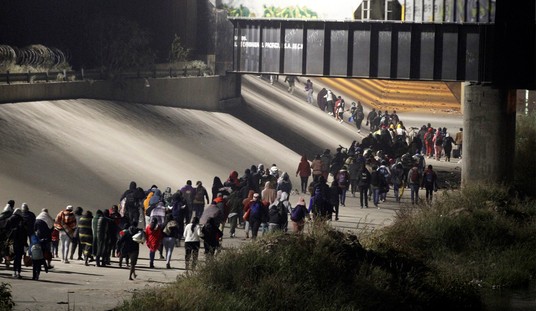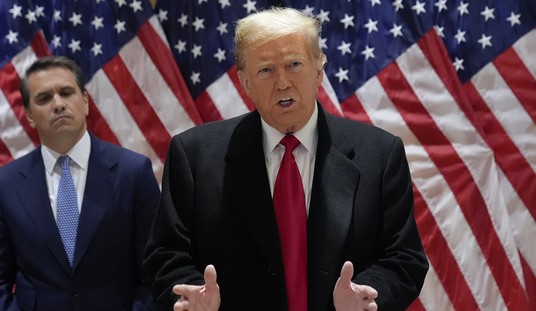Liberals are fond of claiming that election fraud doesn’t exist. That’s what’s called a “lie.” It does exist, they know it exists, and they know that it benefits their party.
In heavily Democrat south Texas, politiqueras buy votes for candidates for office, reports that notorious right-wing rag the New York Times.
DONNA, Tex. — In this Rio Grande Valley town of trailer parks and weedy lots eight miles from the Mexico border, people call them runners or politiqueras — the campaign workers who use their network of relatives and friends to deliver votes for their candidates. They travel around town with binders stuffed with the names and addresses of registered voters, driving residents to and from the polls and urging those they bump into at the grocery store to support their candidates.
Despite rumors that some politiqueras went over the line in encouraging voters, the tradition continued in Donna and other border towns and cities, and campaigns for nearly every local office or seat have paid politiqueras to turn out the vote in contested races.
But in recent weeks, the suicide of the school board president here and accusations of vote buying against three politiqueras have rocked the system. The charges may threaten the existence of politiqueras in Donna, an impoverished community of 16,000, where politics and jobs are inseparable. The school system is the largest employer, and city government is the second largest; local politics rivals high school football as a favored pastime.
Read the whole thing. It includes vote selling and vote buying, fraud based on absentee ballots, the works. It also includes a nod to the political usefulness of keeping some people poor.
A woman who worked as a politiquera in Donna said paying cash or trading drugs for votes had been common in recent elections.
She estimated that in the 2012 elections, 2,000 votes were bought with cash or drugs. Low-income voters, she said, had come to expect a payment in exchange for their vote.
“People are asking to get paid because they already know,” said the woman, who did not want to be identified out of fear of retaliation and because of the investigation. “People look forward to it. You have to understand the poverty. So if they can make an extra buck, they’re going to make an extra buck.”
Where economic opportunity is scarce and government is the major employer and most important source of income, votes are up for sale to the highest bidder. It serves the Demcorats in south Texas to keep people poor and dependent.
The problem of the politiqueras has been known widely for years. Texas enacted voter ID to help deal with them and other kinds of fraud.
In New York, election fraud takes a different shape.
New York City’s watchdog Department of Investigations has just provided the latest evidence of how easy it is to commit voter fraud that is almost undetectable. DOI undercover agents showed up at 63 polling places last fall and pretended to be voters who should have been turned away by election officials; the agents assumed the names of individuals who had died or moved out of town, or who were sitting in jail. In 61 instances, or 97 percent of the time, the testers were allowed to vote. Those who did vote cast only a write-in vote for a “John Test” so as to not affect the outcome of any contest. DOI published its findings two weeks ago in a searing 70-page report accusing the city’s Board of Elections of incompetence, waste, nepotism, and lax procedures.
The Board of Elections, which has a $750 million annual budget and a work force of 350 people, reacted in classic bureaucratic fashion, which prompted one city paper to deride it as “a 21st-century survivor of Boss Tweed–style politics.” The Board approved a resolution referring the DOI’s investigators for prosecution.
Read the whole thing. In both of these cases, and the others that John Fund notes in his article, widespread and nearly undetectable voter fraud is benefiting Democrats. Here’s one case that had profound ramifications for the entire nation.
Al Franken’s 312-vote victory in 2008 over Minnesota senator Norm Coleman gave Democrats a filibuster-proof Senate majority of 60 votes, which allowed them to pass Obamacare. Months after the Obamacare vote, a conservative group called Minnesota Majority finished comparing criminal records with voting rolls and identified 1,099 felons — all ineligible to vote — who had voted in the Franken–Coleman race. Fox News random interviews with ten of those felons found that nine had voted for Franken, backing up national academic studies that show felons tend to vote strongly for Democrats.
The Obama administration’s response to efforts to clean up our elections has been consistent: Fight those efforts to clean up our elections by whatever means are necessary. It sued Florida for cleaning up its voters rolls. It sued Texas for enacting voter ID to deal with the politiqueras and other fraud. Wherever there’s an effort to clean up elections, there’s an Eric Holder acolyte trying to stop it.
“Banana republic” isn’t just a store in high-end malls.








Join the conversation as a VIP Member